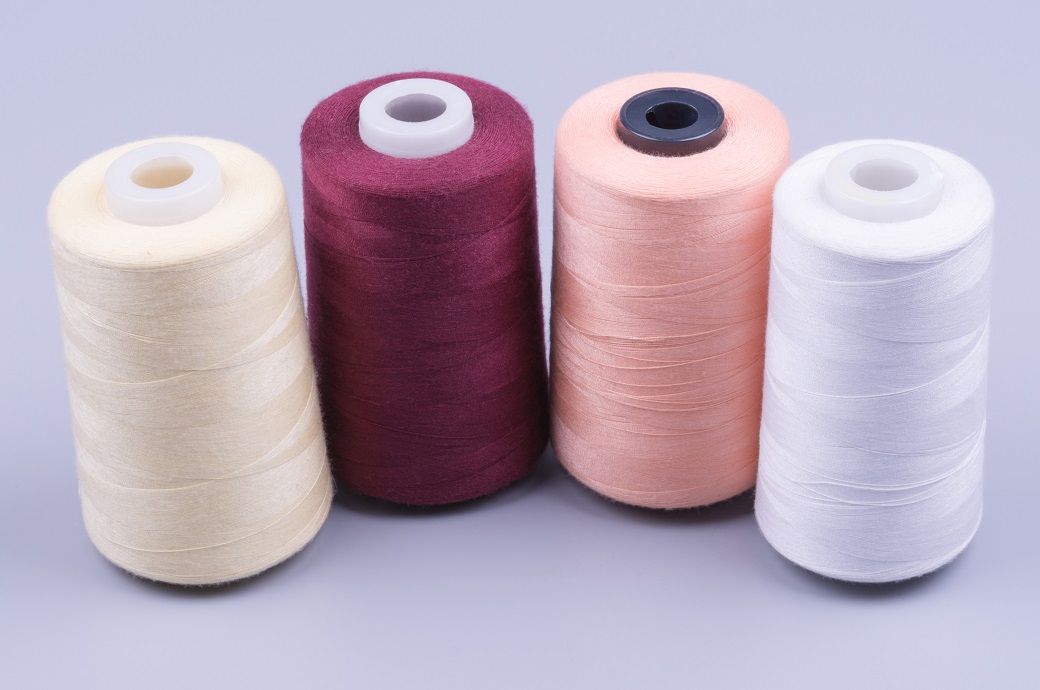
Viscose yarn prices exhibited a mixed trend in the Mumbai and Surat markets. Compact viscose yarn further gained ₹5 per kg and has seen a price rise of ₹10 per kg in the last two weeks. However, the vortex and ring-spun varieties of viscose yarn were traded steadily. A trader from the Surat market told Fibre2Fashion, “The wedding season will begin in March. Therefore, viscose yarn demand has picked up in recent weeks. Such varieties of yarn are mainly used in ladies' garments. The wedding season is considered the main occasion when viscose yarn receives better demand. Compact yarn is better on machines for the production of fabric, and its fabric is more touch friendly.” Limited supply and higher demand caused the price rise of the material.
In Mumbai, imported 30 count viscose vortex yarn was priced at ₹201-205 (approximately $2.31-2.36) per kg; and local 30 count ring-spun viscose yarn at ₹202-207 (approximately $2.33-2.38) per kg in this market. In Surat, 30 count viscose compact yarn (local) was sold at ₹220-222 (approximately $2.53-2.56) per kg (GST extra) and 30 count viscose vortex yarn at ₹204-205 (approximately $2.35-2.36) per kg.
The Ludhiana market noticed weaker demand for polyester-cotton and polyester-spun yarn. The market is facing payment issues from the downstream industry. According to market sources, there was no change in the prices of PC and polyester-spun yarn. Slow demand and tight payment conditions continue for now. The market is unlikely to see any positive impact from the tariff hike on knitting fabric. Although there were reports of 2,000-3,000 containers stuck at Indian ports as the tariff hike announced in the union budget was implemented with immediate effect.
In Ludhiana, 30 count PC combed yarn (48/52) traded at ₹210-220 (approximately $2.42-2.53) per kg (GST inclusive); 30 count PC carded yarn (65/35) at ₹196-206 (approximately $2.26-2.37) per kg; 20 recycled polyester at ₹113-120 (approximately $1.30-1.38) per kg; 30 count polyester spun at ₹157-164 (approximately $1.81-1.89) per kg (GST inclusive); recycled polyester fibre (PET bottle fibre) at ₹79-82 (approximately $0.91-0.94) per kg; and virgin polyester fibre at ₹103 (approximately $1.19) per kg.
Surat’s polyester yarn market also saw bearish demand, with prices hovering at previous levels. According to market sources, market dynamics remained the same. Buyers were cautious about fresh purchases. Slow payment flow discouraged them from fresh buying. They are buying polyester yarn for immediate consumption.
In Surat, 30 count polyester spun yarn was traded at ₹145-146 (approximately $1.67-1.68) per kg (GST extra); 40 count poly spun yarn at ₹158-159 (approximately $1.82-1.83) per kg; 50/48 fully drawn yarn (FDY) at ₹115-116 (approximately $1.32-1.34) per kg; 75/72 FDY at ₹105-106 (approximately $1.21-1.22) per kg; and 75 bright yarn ₹105-106 (approximately $1.21-1.22) per kg.
In north India, cotton prices gained ₹30-40 per maund of 37.2 kg due to a rise in ICE cotton. Stronger cotton reduces the price disparity for Indian cotton, which improves its prospects in the global market. Indian cotton is currently facing more than a 15 per cent price disparity compared to ICE cotton. However, there was no change in domestic dynamics like arrivals and demand from spinning mills.
North India’s cotton arrival was 9,200 bales of 170 kg, comprising 700 bales in Punjab, 2,500 bales in Haryana, 3,500 bales in upper Rajasthan, and 2,500 bales in lower Rajasthan. Cotton prices in Punjab ranged from ₹5,540 to ₹5,550 (approximately $63.78-63.90) per maund of 37.2 kg, while in Haryana, prices ranged from ₹5,520 to ₹5,540 (approximately $63.55-63.78). In upper Rajasthan, cotton was priced between ₹5,550 and ₹5,570 (approximately $63.90-64.13) per maund. In lower Rajasthan, it was priced at ₹52,800 to ₹54,000 (approximately $607.90-621.71) per candy of 356 kg, while seed cotton was priced at ₹7,100-7,400 (approximately $81.74-85.20) per quintal of 100 kg.
ALCHEMPro News Desk (KUL)
Receive daily prices and market insights straight to your inbox. Subscribe to AlchemPro Weekly!